Revolutionizing Modern Marketing: The Role of AI in Driving Business Growth
AI has become a powerful tool for marketers to personalize, automate and optimize marketing communications. This article outlines how artificial intelligence has affected various aspects of modern marketing and offers practical tips on how one can harness the power of artificial intelligence to drive remarkable business growth.
BUSINESSAIMARKETINGTRENDS
Bogdan Antihi
8/12/2024
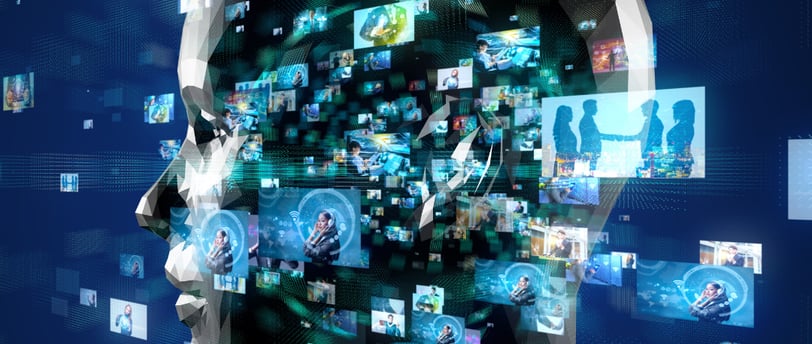

Table of contents
Introduction
In this fast lane world of digital everything, marketing has become some intricate hybrid science/art/tech thing. Artificial intelligence (AI) is one of the mightiest powers of this new age. Not the future anymore, but part of now, AI is a necessity for marketers, allowing personalization, automation, and optimization on a scale that has never been seen before. This article discusses how artificial intelligence is transforming the face of marketing in this day and age, from crunching numbers and learning about a customer's perspective to tailoring messages for individuals and supplying automated help desks. And I'm not just talking about better marketing but real growth in their company and keeping that edge in this perpetual race that is the world with the help of AI. Well let’s get down to brass tacks of the hundreds of ways AI is changing the face of marketing and explore some real ways to use it to become a phenomenal business success.
1. Enhanced Data Analysis and Customer Insights
One of the things that AI excels at is processing substantial amounts of information in a brief period of time with extreme accuracy. Tools like Predict, Pecan and Tableau use AI to allow the marketers to analyze consumer behavior, trends, what they enjoy and what they do not in order to develop effective marketing strategies.
Data Collection and Processing
AI can gather data from social media, from activity on the site, from buying history and find details and patterns that a human analyst could miss. For example, Google Analytics uses AI to determine how many hits a web site is getting and what the users are doing on the site so the companies will know what sort of marketing effort is attracting the most attention.
Customer Segmentation
Then there is behavioral segmentation, preferential segmentation, demographic segmentation, all of which can be analyzed through customer data and AI. This allows the marketers to tailor their messages and offers to these "segments" of consumers and therefore the marketing becomes that much more targeted and response oriented.
Predictive Analytics
One form of AI is predictive analytics, where past data is analyzed to determine future patterns and behaviors of customers. This allows companies to predict with accuracy what their consumers will desire, to optimize inventory and to construct far more streamlined marketing strategies. For example, a store could know exactly what everyone is going to want and they can have that number in stock and no overages.


2. Personalization at Scale
Personalization is crucial in modern marketing. Consumers expect the brands to understand what they want and provide them with content and offers accordingly. With AI, companies can mass produce custom experiences, they can look at all the personal consumer data and tailor the content, recommendations, and deals right then and there.
Dynamic Content
AI also can create content that is malleable and based upon the user’s behavior and preferences. Netflix uses AI to recommend to their users movies and TV shows they might be interested in watching based on viewing history, thus making the whole experience a lot better and more interesting.
Personalized Email Campaigns
AI can be used to customize email campaigns according to the behavior and interests of subscribers. For example, Mailchimp and HubSpot utilize AI to segment email lists, personalize content and optimize send times, thus resulting in higher open rates and click-through rates.
Product Recommendations
Amazon, and other online retailers, use AI to recommend items to shoppers that are similar to what they have looked at or bought in the past. That sort of personal recommendation can really increase conversion rates and average order value.


3. Content Creation and Optimization
Creating high-quality content consistently can be challenging. Well, AI can help marketers with idea generation, rough drafts, SEO and all that good stuff.
Content Generation
AI’s like ChatGPT and Jasper can also write blogs, FB statuses, tweets, ads and so on. These are nlp-driven "tools" (natural language processing) that produce human-like language, and so are a huge time saver and ensure consistency. A content marketer could write the first draft of a blog post using AI, then go back and refine and edit.
SEO
AI can also analyze the top performing content in any subject area and recommend topics, keywords, and structure of content that would maximize reach and engagement. Marketers use tools like BuzzSumo and Frase to determine high performing keywords and content gaps in order to write content that will rank better on search engines.
Content Personalization
AI could trace users’ behavior and interests and tailor content for that user. For instance, an artificially intelligent content recommendation engine would reveal articles or videos like the ones that the user has already visited, thereby attracting more "clicks" and increased browsing time.


4. Automated Customer Service
Customer service is also being revolutionized by AI chatbots and virtual assistants: they are open 24/7 and respond instantly. From the FAQs to assistance with purchases, everything can be taken care of by these tools making the shopping experience more enjoyable for the consumer and freeing up the employees to deal with more important tasks.
Chatbots
The use of AI chatbots allows companies to interact with their customers through their websites and social media accounts and have immediate answers to the most common questions. For instance, H&M uses AI chatbots to help customers search for products, provide recommendations and assist with the shopping process.
Virtual Assistants
Alexa from Amazon and Google Assistant are two AIs that give personalized help and recommendations. These types of assistants enable users to make reservations, to set reminders and do research, all for the convenience of the consumer.
Customer Support Automation
All the routine tasks that AI can execute in customer support (returns and refunds, changing accounts, checking orders etc.) help remove the workload from the human agent's shoulders so that they can focus on more important assignments.
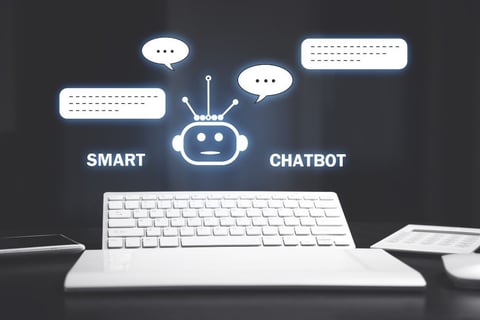

5. Predictive Analytics for Better Decision Making
Predictive analytics is the application of artificial intelligence to analyze past data in order to forecast future patterns and actions. This is so great for marketing because with this ability companies can find out what customers want before they even know they want it, keep perfect inventory, and plan the most efficient campaigns.
Demand Forecasting
Retailers, for instance, use predictive analytics to forecast demand for a product so that they don't have too much or too little inventory sitting around. For example, a clothing store could see what is going to sell out next season and order plenty of that.
Customer Lifetime Value (CLV)
For example, predictive analytics can determine the expected lifetime value of a customer, so that businesses will better understand who their most profitable customers are and allocate their marketing dollars accordingly. Like in an e-commerce web site that uses ai to determine which customers are most likely to buy again and then targets those customers with tailored offerings.
Churn Prediction
Now AI can figure out who is most likely to “jump ship”, and the company can do something about it before it even happens. Such as a subscription company could use predictive analytics to find out who is more likely to cancel their subscription, and then offer them some kind of incentive to not cancel.
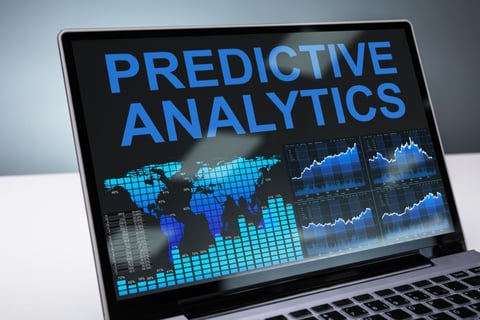

6. Optimizing Ad Campaigns
And even better, artificial intelligence can follow advertising campaigns to see what works and what doesn't in real time. It can change bids and targeting and hell it can even generate ad variations on the fly for optimum efficiency.
Real-Time Bidding
Real time bidding for digital ads is a process in which companies only pay what they must to make their bids as efficient as possible, but this can be better optimized with AI. Google Ads and Facebook Ads both use AI to optimize bids based on the highest probability of conversion, ensuring that ad money is used as effectively as possible.
Audience Targeting
AI would look at the data and determine what the probable audience should be for a certain advertisement campaign. This sort of targeting is predicated on the notion that the advertisements will be shown to those users most likely to have an interest in the product or service, and most likely to click on the ad and purchase the product.
Ad Creative Optimization
AI can create and try out all the different ads and see which ones work best. Such as when an ai helps to create an ad and it can try out hundreds of different headlines, images, calls to actions, etc. and then it can see which combinations performed the best in terms of click through and conversion rates.


7. Enhanced Email Marketing
AI will change email marketing because it can deliver customized content, send emails at the best times and segment the audience much more efficiently. And because of AI you can track what subscribers do and send out emails that are a lot more relevant which means more openings and click throughs.
Personalized Content
From the analysis of subscriber data AI could generate emails whose content is relevant to every individual on the mailing list. I. e. some kind of AI program would analyze a user's past purchases and browsing tendencies and then suggest to a subscriber certain products or content that the subscriber would be most likely to find appealing.
Optimized Send Times
AI can look at the click through data and figure out the best time to send each person an email when it is most likely that the recipient will open and respond to it too.
Audience Segmentation
AI can also segment email lists by different criteria such as age, sex, location, behavior and engagement levels. This categorization enables the marketers to customize their messages to each category, which makes their email campaigns much more relevant and productive.


9. Customer Journey Mapping
AI can analyze customer interactions on all the various touchpoints to map the customer journey and identify the problematic areas.
Journey Analytics
That is because AI is capable of tracking and analyzing consumer response from web sites and email and social media. That kind of feedback provides companies with a whole image of what the customer experienced, and they can then see where they failed and where the possibilities for improvement are.
Behavioral Insights
AI can analyze a customer's behavior and find out what patterns and trends exist, and which touchpoints have the greatest power of influence over conversions. Now companies know how to directly aim their advertising and improve customer service.
Personalized Experiences
If companies knew the customer’s journey, then they could design experiences that would lead a customer down the path of purchase. Like an e commerce site that uses AI to recommend products and content based on the user’s browsing history and previous activity.
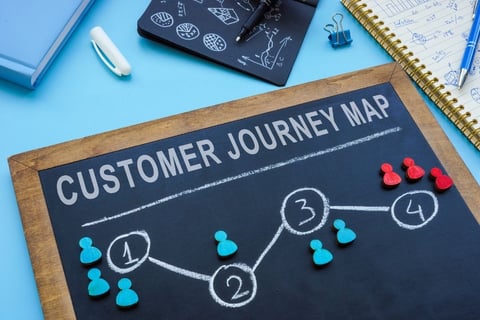

Conclusion
AI is no longer the future of marketing but has become an integral part of today's strategies. Using AI companies can strengthen their marketing strategies, increase the level of interaction, and therefore experience greater revenue expansion. Reaching the desired sales goals is going to come from the utilization of AI-driven tools and strategies that will optimize and personalize every step of the customer's journey.
Integrating AI into your marketing plan can be an intimidating task, however, the rewards are well worth the effort. So, start small, play with various AI tools and slowly begin to work them into your systems, before your competitors do, before your customers demand it.
Here are six steps to get you started:
Steps to Integrate AI into Your Marketing Strategy
1. Identify Areas of Improvement
Start with an audit of your current marketing efforts and determine where AI will have the greatest impact. From repetitive task automation to better customer insights and increased personalization, figure out what parts of your marketing could use AI help.
2. Choose the Right AI Tools
There are so many AI tools out there and they all do different marketing things. Tools that will be in line with your business objectives. For instance, if you are trying to do content marketing, Jasper is great for creating content and Frase is great for SEO optimization. There is also email marketing and MailChimp and HubSpot have neat AI features that can help tailor and segment the emails.
3. Pilot Projects
Do some pilot projects to see how well these AI tools work. Choose a small, manageable aspect of your marketing strategy to experiment with AI. For instance, you might start by using AI to personalize email campaigns or analyze social media engagement. Monitor the results closely and adjust as needed.
4. Train Your Team
Train your marketing department in AI and then invest. AI is a different beast and knowing how to utilize it is a whole new ballpark so train your people and give them the tools to effectively utilize these technologies. Think workshops, online courses, tutorials, what have you, to bring your team up to par.
5. Measure and Optimize
And constantly track how AI affects your marketing. Use key performance indicators (KPIs) such as engagement rates, conversion rates, and customer satisfaction to gauge success. AI tools often come with analytics and reporting features that can help you track performance and identify areas for further optimization.
6. Scale Up
Once you have seen positive results from your pilot projects, scale up your AI initiatives. Use more AI in your marketing such as customer service and ad campaigns. The scalability of AI means that as your business grows, your AI tools can grow with you, providing more opportunities for optimization and efficiency..


Case Studies and Success Stories
Here are some case studies of companies that have successfully incorporated AI into their marketing strategies to demonstrate how AI is changing the world of marketing.
1. Sephora
Sephora uses AI to improve customer service and engagement. Well, the company recently uploaded an AI chatbot on its web and mobile app that will recommend to customers what they might be interested in or what they came to the site to look for in the first place or even give beauty tips. This is a Sephora Virtual Artist and it is an artificial intelligence chatbot that uses facial recognition so that the consumer can try on the makeup before actually purchasing it. This interesting application of AI has not only made the shopping experience for the consumer more enjoyable, but has also increased online sales.
2. Starbucks
Starbucks is one of the companies that has used AI for their personalized marketing. It utilizes artificial intelligence to process customer data, and then delivers targeted shopping recommendations to the consumer's mobile application. Starbucks can track what a person orders and how often they order it and then send them coupons for those drinks or recommend new drinks that they think that the customer would enjoy. Personalization through AI has helped Starbucks increase sales and customer interaction.
3. Netflix
Netflix is well known for its use of AI in movie suggestions. Netflix uses artificial intelligence to study what a person watches and what they might like and then recommends other movies or shows that person might enjoy. Netflix has become even more successful because of all this personalization and attracted higher engagement and better subscriber retention rates.


Future Trends in AI Marketing
With the development of AI, its uses in marketing will grow. Some future trends to look for are:
1. Voice Search Optimization
Now with the Amazon Echo and Google Home, voice search optimization is an important thing. Marketers will be able to analyze how people use voice search, and then can tailor their content to accommodate these new search patterns.
2. AI-Driven Video Content
Video is still king in social media/digital marketing. And with AI it can track how long a user watches a video, what they fast forward through, what they rewind to see again, etc. Tools like Captions.ai and HeyGen use AI to allow marketers to easily create and edit videos.
3. Advanced Chatbots
And the AI chatbots will advance even more, with more individual attention and human like conversations. These chatbots will be able to field more intricate questions and offer continual customer service over many different media.
4. Emotion AI
Emotion AI or affective computing is the analysis of human emotion through facial and tone of voice and other nonverbal stimuli. This sort of technology could give marketers a better understanding of how consumers feel about their products, and thus allow them to develop ads that appeal more to consumers emotions.
5. AI in Influencer Marketing
The other way that AI can be beneficial is that it can help determine which influencers are most influential to a brand because AI can analyze social media data and engagement metrics. This ability allows brands to choose influencers that have real influence over their consumer base. And if you are not satisfied with what exists on the market you can even create your own AI influencer. Tools like Leonardo and RenderNet already offer high-quality image generation, prompt generator to help with creative ideas and character consistency features, making it easier to maintain a cohesive look for your influencer.
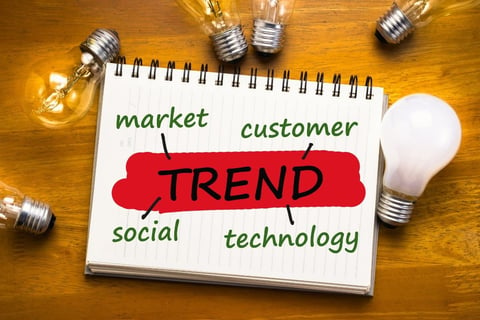

Challenges and Ethical Considerations
While AI is greatly beneficial, it also creates many problems, and ethical issues that companies will soon have to deal with.
Data Privacy
It is all about the data collection and analysis with AI in marketing. Oh ya, and then there is the whole data privacy/GDPR thing. Businesses should be very clear about exactly how they are using consumer information and what purpose it is being used for and they should have some really tight security.
Bias and Fairness
One issue with AI algorithms is that they tend to perpetuate biases already existing in the data they are trained on. Marketers should always be searching for biases and work to eradicate them as much as they possibly can, it is the fair and inclusive thing to do.
Transparency
Hehe AI is kinda a "black box" when it comes to making decisions, it’s hard to see exactly how they got to a certain answer. AI systems in business should be very transparent, explaining exactly how an AI tool arrives at a decision or recommendation.


Final Thoughts
Marketing strategies nowadays are so reliant on AI. AI is revolutionizing the way business interact with their customers whether it is through more detailed data analysis, greater personalization, content creation, customer service, or predictive analytics. Starbucks, Sephora, Netflix, the list goes on of companies who have proven that AI can drastically enhance customer engagement which in turn will generate more company revenue.
Companies are going to have to adapt or accept AI in their marketing strategies if they are to keep up. AI will make a company successful, but they have to start with small implementations, choose the right tool sets, train their people, and continuously measure and tweak what they are doing.
As AI technology continues to grow, so will its use in marketing and so will the possibility to innovate and streamline. If they can manage to stay current, but at the same time, conquer the hurdles as well as the moral conflicts that come along with these, then companies will be able to harness the power of artificial intelligence's revolution in the realm of modern marketing.
© 2025 Bogdan Antihi. All Rights Reserved.
Follow me on
Let’s Make AI Work for You



8. Social Media Management
AI can be used to manage and optimize social media marketing, to read engagement data, to schedule posts and to better understand the audience.
Content Scheduling
With the help of AI, tools like Hootsuite and Buffer can post on social media at the best times possible to reach the largest audiences and generate the most interaction. They analyze all the engagement data to determine the best time to post for each of the platforms and for each of their audiences.
Sentiment Analysis
Businesses can use artificial intelligence to analyze conversations on different social media platforms and see what the public says about a brand or product. From this companies can understand what kind of image their company portrays to the public and can then advertise their products in a way that complements that image.
Engagement Analysis
AI can analyze social media data and see what kind of content gets the biggest reaction from the audience. Now knowing this, marketers can create content that not only will increase engagement but reach as well.